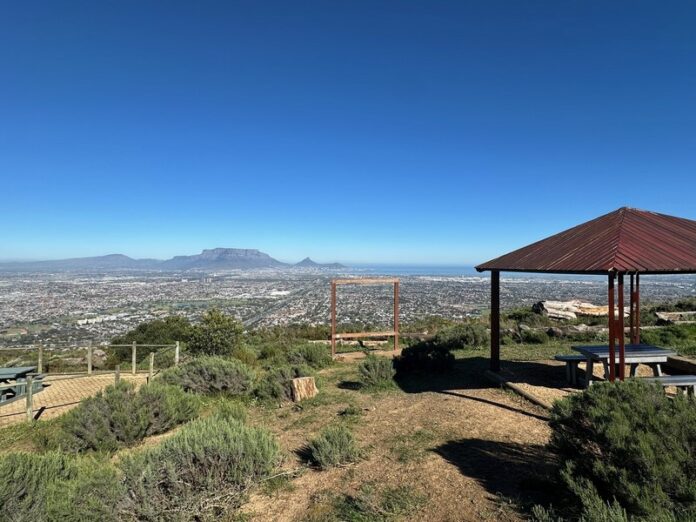
Today, 1 September 2025, the City of Cape Town officially launched Tourism Month at Tygerberg Nature Reserve, one of the city’s most scenic vantage points. Overlooking the Cape Flats, Table Mountain, and Robben Island, the reserve also protects some of the last remnants of the critically endangered Swartland Shale Renosterveld.
Mayoral Committee Member for Economic Growth, Alderman James Vos, said the choice of venue was deeply personal. “Tygerberg is in my own backyard, and my message to Capetonians is simple: explore your own backyard. Discover what is close to you, support local businesses, and experience the gems right around the corner. That is how we keep tourism alive, inclusive, and accessible.”
Tourism as a Driver of Growth
Vos emphasised that Tourism Month was not only about celebrating Cape Town’s beauty but also about driving opportunity and growth. He announced that the City would soon publish its Tourism Development Framework, a bold and practical plan to “turbocharge the visitor economy.”
The framework, developed through research and extensive consultation, addresses challenges such as seasonality, transport, and barriers to growth. It encourages collaboration between the public and private sectors, coordinated marketing under one strong voice, and product clustering to create richer experiences. “Anchored in global best practice, the plan lays out clear actions to create more jobs, support small businesses, and ensure communities across the metro share in the benefits of tourism,” Vos said.
Strong Visitor Economy
Recent statistics highlight the impact of tourism on Cape Town:
Visitor Numbers: In 2024, the city welcomed 2.4 million overnight visitors, who spent R24.5 billion directly in the local economy, supporting over 106,000 jobs—nearly 7% of total employment.
Air Connectivity: Cape Town is connected to 31 global destinations, with 226 international flights weekly during peak season, strengthening both tourism and trade.
Events and Conferences: The Cape Town & Western Cape Convention Bureau secured 36 international conference bids worth R745 million, set to attract 27,000 delegates by 2028.
Hospitality: Hotel occupancy in April 2024 reached 64.6%, well above the national average of 56.3%.
Global Campaigns and Local Access
To strengthen Cape Town’s global presence, the City has launched several high-impact campaigns. A recent India campaign achieved more than 330 million impressions, while innovative digital tools—from AI-searchable content libraries to creative activations—are positioning Cape Town as a world-class destination.
Vos stressed that tourism is not just about international visitors. “Tourism must also be affordable and accessible for locals and domestic travellers,” he said. The Cape Town Tourism website (www.CapeTown.Travel) lists free and low-cost attractions across the metro.
The City is also spotlighting new and emerging tourism businesses, from restaurants and cultural venues to community-based experiences. Through its Community Tourism Development initiatives, it is providing training, mentoring, and market access to entrepreneurs, helping them become tourism-ready.
The Power of Tourism
Vos underlined the true impact of the sector: “For every 10 tourists who arrive, one job is created or sustained. That is the real power of tourism.”
He concluded that Cape Town’s mission is clear: to grow the visitor economy, create more employment, and open up opportunities while safeguarding the city’s natural and cultural heritage for future generations.

